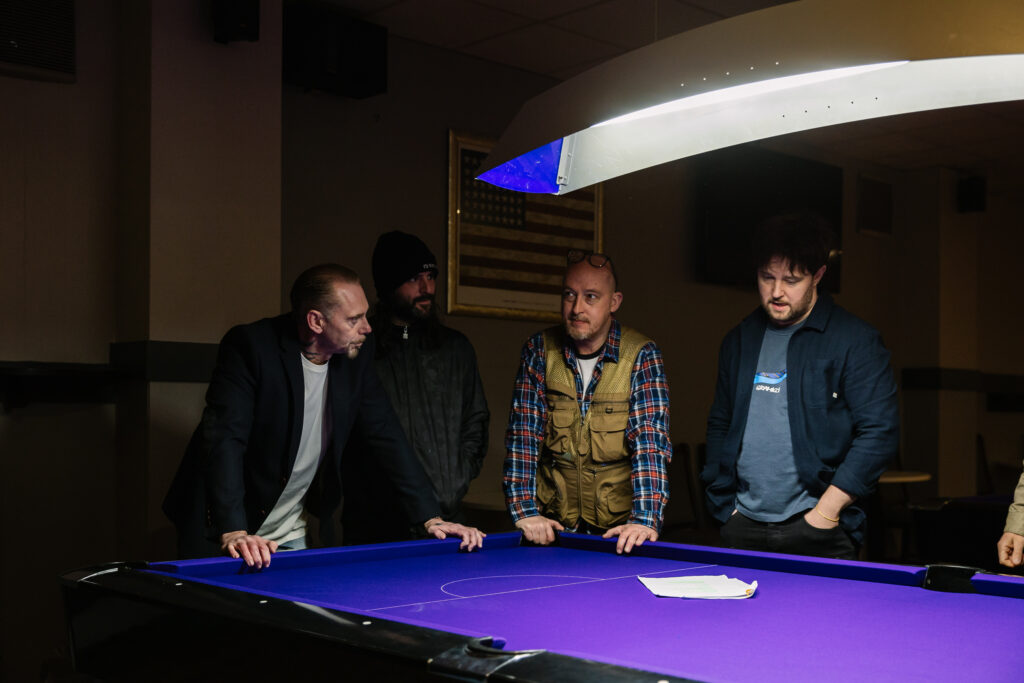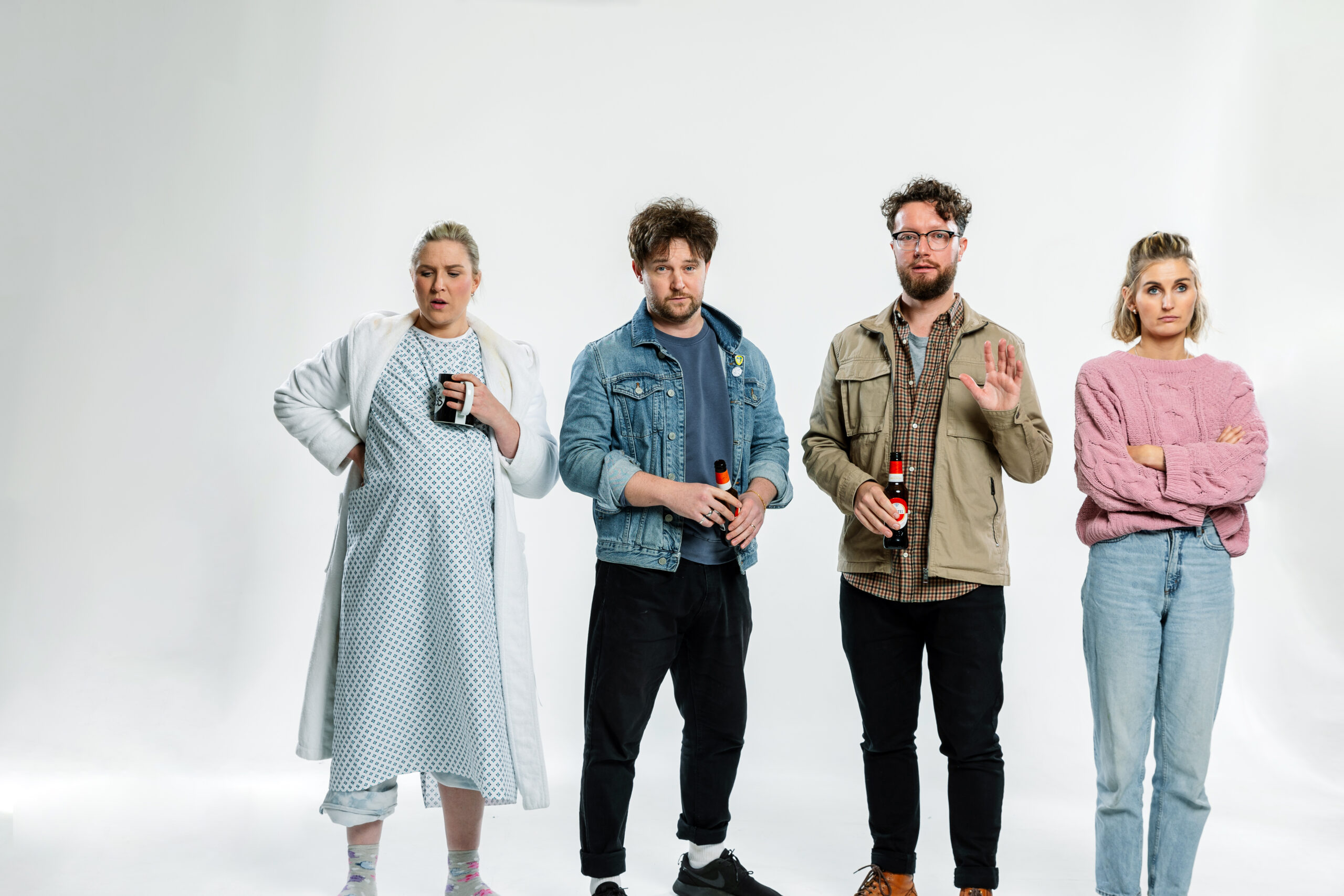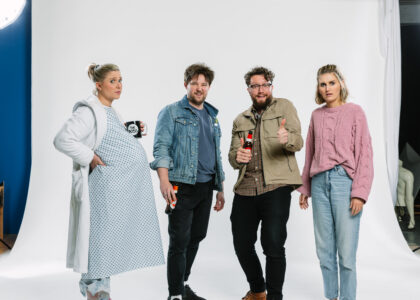This continues from the first blogpost which is here – if you want to read part one…
So…
Web 2.0 arrived in the UK in around 2006/2007 – remember before that time there was no Facebook or YouTube – I was working as a scriptwriter and storyline writer on Hollyoaks at this time – I remember looking at MySpace and thinking – this will be big (lol) but when YouTube arrived – I knew (somewhere in my head) that the game was changing.
I helped to take Hollyoaks from half a million viewers to 3 million viewers per episode – when I wrote Emmerdale we got around 12 million viewers per ep – when I was on Eastenders they could get 15 million viewers at time. Coronation Street was king of the TV soaps most of the time – again – getting 15/16/17 million viewers (and ITV getting all the revenue from advertisers who paid premium for those ad slots).
That was 2006/2007 – before web 2.0 arrived.

The current viewing figures for the soaps are now (in 2023)
· Coronation Street (still top) gets 6 million viewers on average
· Emmerdale gets 5 million
· Eastenders gets 4 million
· Hollyoaks gets 725,000 viewers
The advertising sell for these slots will have become much cheaper (to the extent that CH4 is nearly going bust because the sale of ads on their channel has fallen through the floor).
And these figures are all pretty generous – Hollyoaks can get below 500k and both EastEnders and Emmerdale can get very low viewing figs too (around 3 million). Corrie can get half its 6 million at times as well.
The viewers have gone somewhere else – and in 2006/7 it seemed a no-brainer to me that viewers eyes would be grabbed by YouTube or MySpace – ITV and BBC for years had run down its children’s TV offering – kids where already going on games and online rather than watching TV (without proper kids TV in the schedules for years prior to this kids never really got in the habit of watching TV the way my generation did) – alongside MySpace was a children’s social network called Bebo – getting millions of sign ups.
Then, around this time came the smart phone – a phone that could be used to call or text – or watch YouTube / surf the net – or log onto MySpace.
By the time I left Hollyoaks in 2007 – I was reading more books about the web that I was about almost anything else – I was sure that learning about this stuff could be applied to my scriptwriting and filmmaking at some point.
It was around this time that I was approached by hot-shot soap director Ian Bevitt (Emmerdale / Corrie and Inside Number9 these days) and renowned producer Martyn Smith (Dragon’s Den and the Apprentice) to create a teen soap for an online audience.
I’ve written before about the process of creating the series Dylan Ogden (you can read about it here on my own scriptwriting website). Writing Dylan Ogden combined my scriptwriting career with my interests in what was then called ‘new media’.
Sober the movie
Dylan Ogden was where I first met the super talented Dean Smith and Tom Gibbons – even in their early teens it was clear they were funny and intelligent young actors.
Dylan Ogden was too early – it was MySpace – when a few years later it could have been Facebook.
But over the years since – I have kept in touch and watched with pride as Dean and Tom’s careers blossomed as actors.
So, I was again at a bit of a crossroads (no soap pun intended) – I was kind of tired of TV – and now had an interest and passion for doing something online – using digital tools (I just didn’t know what it was).
In between scriptwriting gigs I took a job working for a charity in Leeds, it was only meant to be for a year or two. But the charity suddenly started a social media team – this will have been 2009 – and I got a job working in that social media team – and I ended up working at the charity in digital / online communications and marketing and social media for ten years (2008 – to around 2019). Also, during this period – I started a website selling my services as a scriptwriter (I no longer had an agent – as I’d lost all interesting in writing existing shows – which UK scriptwriters need to do to pay the bills – original commission are rare – and usually go only to the top few writers in the business – nobody else gets a look in).
The website selling my scriptwriting services benefitted from all I’d learned working for the charity – I used SEO techniques and SEM techniques and the website started to rank very well on search engines for all kinds of scriptwriting queries – and low and behold – by 2014 I was getting tons and tons of scriptwriting work (from producers and directors all over the world).
This work could be commissions for original scripts or…
- Book adaptations
- Script reports and analysis
- Rewrite jobs -on all sorts of films and TV
- Storyline writing and consultancy for TV producers.
- Plain old script reading reports for new writers
So much work came in at times I started to sell it to other scriptwriters.
By 2019, I’d paid off my mortgage and had purchased a pile of digital editing PCs and camcorders and digital cameras – I had enough to make a film I thought – not just enough to kit to make a film – but enough knowledge of how the web worked to sell and distribute a film myself.
There’s a lot of talk about ‘Gatekeepers’ in film and TV – what Gatekeepers are really, are people with the access to finance who decide what gets made with the funds they have.
Gatekeepers might mean Hollywood producers and studios execs (who have to be convinced your project will make money and be a good investment).
They might be agents – who if you don’t have a good agent – your stuff won’t even get in front of anyone who can make a decision (and believe me there are lots of bad / useless agents out there – so even if you have an agent – it doesn’t mean they can get your stuff read or get you in a room with someone who can make a decision on your script – bad agents are worse than no agent at all in many ways.)
Heads of broadcast networks are gatekeepers – they decide what original drama or comedy ends up getting made by their network – and they, like to stack the odds as much as possible – known writers – known actors – known producers and directors – if you’re not known at a tabloid newspaper level (like Jimmy McGovern or Russell T Davies or Sally Wainwright for example) – you’re not getting in the door.
Sober the comedy film
Funding bodies – BFI – Creative England – local screen agencies too – these places dole out Lottery cash to fund films – there’s been a lot of bad publicity about the BFI – and historically the screen agencies were rumoured to be corrupt and what money they did give out often went to friends or family of people who worked within the organisations – things have improved in my experience of the screen agencies (who lost most of their funding after the dreaded Brexit calamity)– but the BFI itself is NOT FIT FOR PURPOSE and if anything is getting worse – and needs closing down asap please.
So, with my website and scriptwriting work – I seemed to have bypassed needing an agent – and I even got work from Hollywood (by passing not just gatekeepers there – but being based in the North of England I managed to bypass an entire continent and time zone).
So, I wanted to direct (or course) but seriously– from the very start of my career and before – my main aim was to direct stuff. I started making films on Super 8mm cine film when I was a teenager – Here’s one below a Leeds set gangster film called Point Blank which I wrote and directed when I was 16 years old!
At 16 – I didn’t want to be a scriptwriter I wanted to direct – and read that script writing was a good way in (that might be correct in America – its not at all in the UK).
Anyway – I was confident that with online tools now available and the cheapness of good digital video equipment and editing and postproduction solution that I could now make a film on the cheap and release it (and sell it) online.
Making a low budget movie is pretty hard – but I also decided to do it without a script – and that the actors would improvise the whole thing. Mad ideas. Then guess what?
Covid 19 happened.
By the time the pandemic had ended (and I lost 4 relatives and some friends to Covid – a very sad time indeed). I had shot four zero budget horror movies and released three of them online – and I’d done pretty well with DVD sales as well.
The three films I’d released online – were really very brilliant learning experiments. And what I had learned was that – I could do everything pretty much myself – production and postproduction (I was even DOP on all four horror films – something I did again on Sober – only on Sober I had to be a proper lighting cameraman for the first time).
One of the first time’s my wife and I went out – as the pandemic came to an ‘end’ (not sure it’s over just yet) was to see Dean Smith and Tom Gibbons in a two man play. As I sat I watched the lads – I decided it was time to make SOBER – but would Dean and Tom be interested in making a zero budget film?
Turns out they were – they helped rewrite the script (from the 1998 version) and they cast it, co-produced and did everything – all along the whole process – side by side with me. Tom even operated the boom mic in many scenes he wasn’t in.
Sober the film shot in Leeds
Its July 2023 – the film is nearly finished – and should be out – later this year or early next. And I think it’s the best thing I’ve ever done.
- It was done without gatekeepers
- It was done without access to funding
- It was made on a zero budget – and it looks good enough to go in the cinema
- We have options one to how we distribute it – ourselves or via a distribution house
This was all done – because the world has moved on from when I wrote the script in 1998 – digital – web 2.0 – social media – the whole landscape has changed – as well as the tech needed to make films.
The world has spun on its axis as far as filmmaking is concerned.
What hasn’t changed?
Good writing is crucial and good actors are crucial. Whatever the future holds new tech or an AI won’t be able to replace my script – or Dean and Tom’s performances and the very human chemistry they have.






